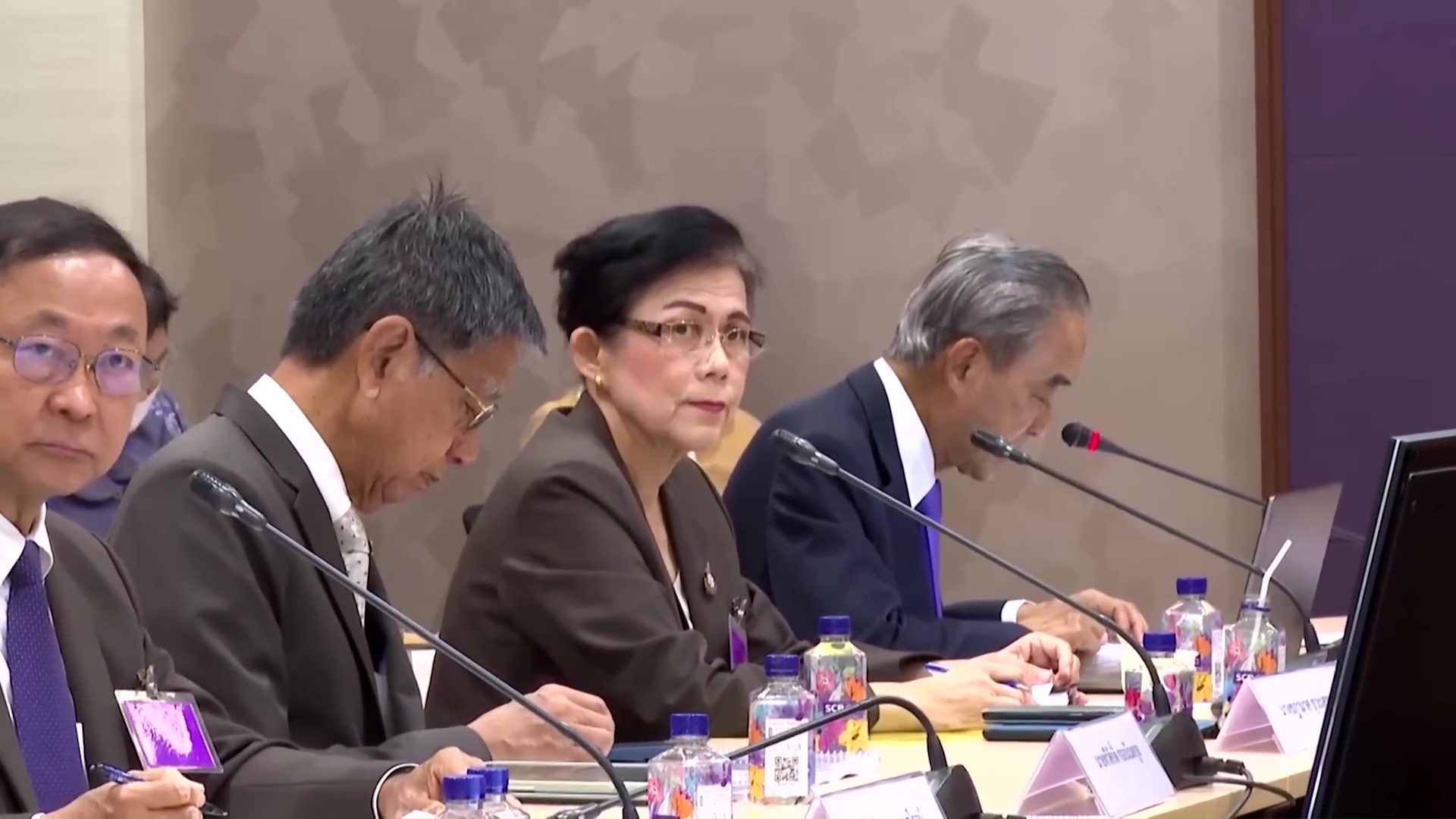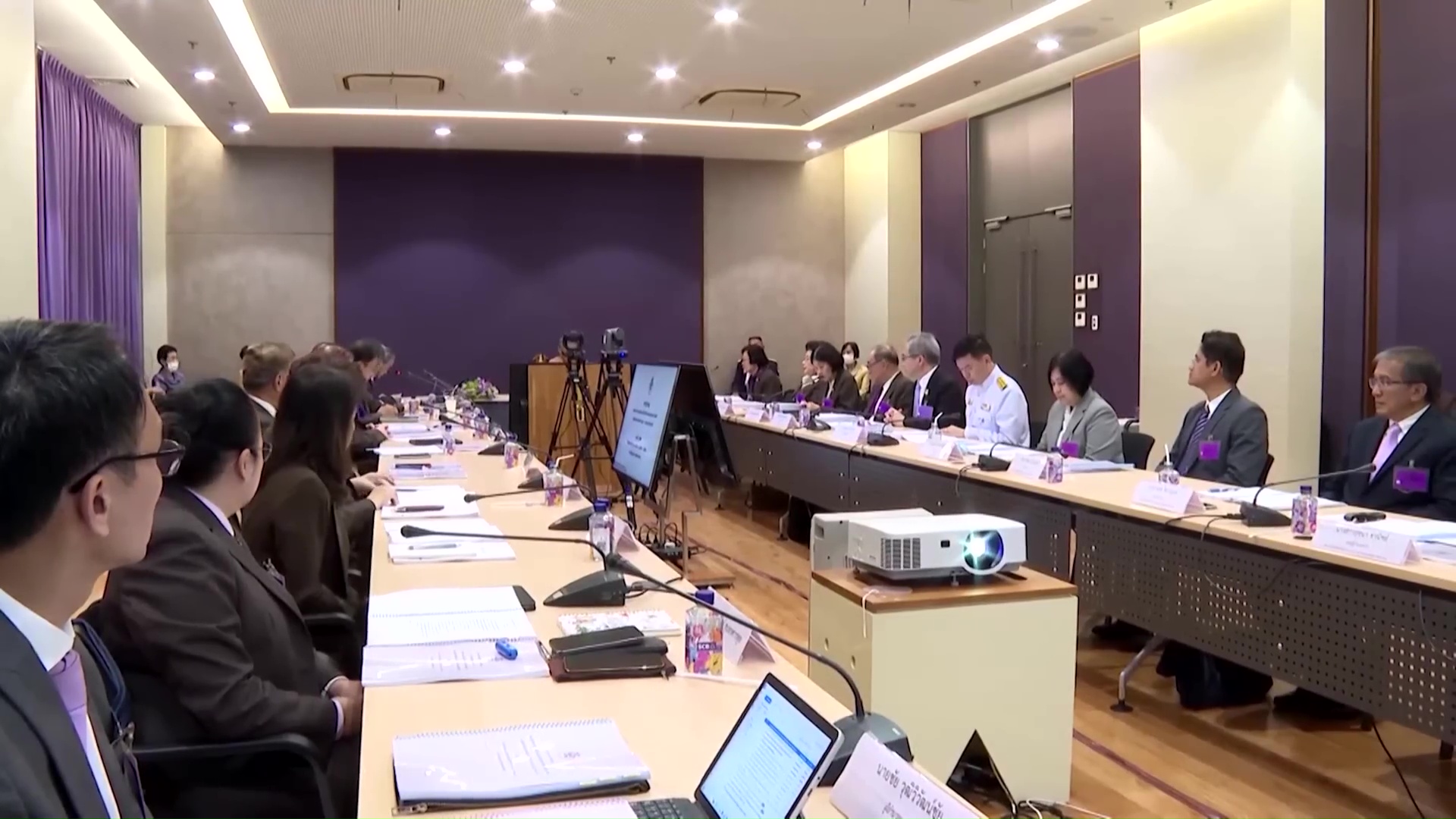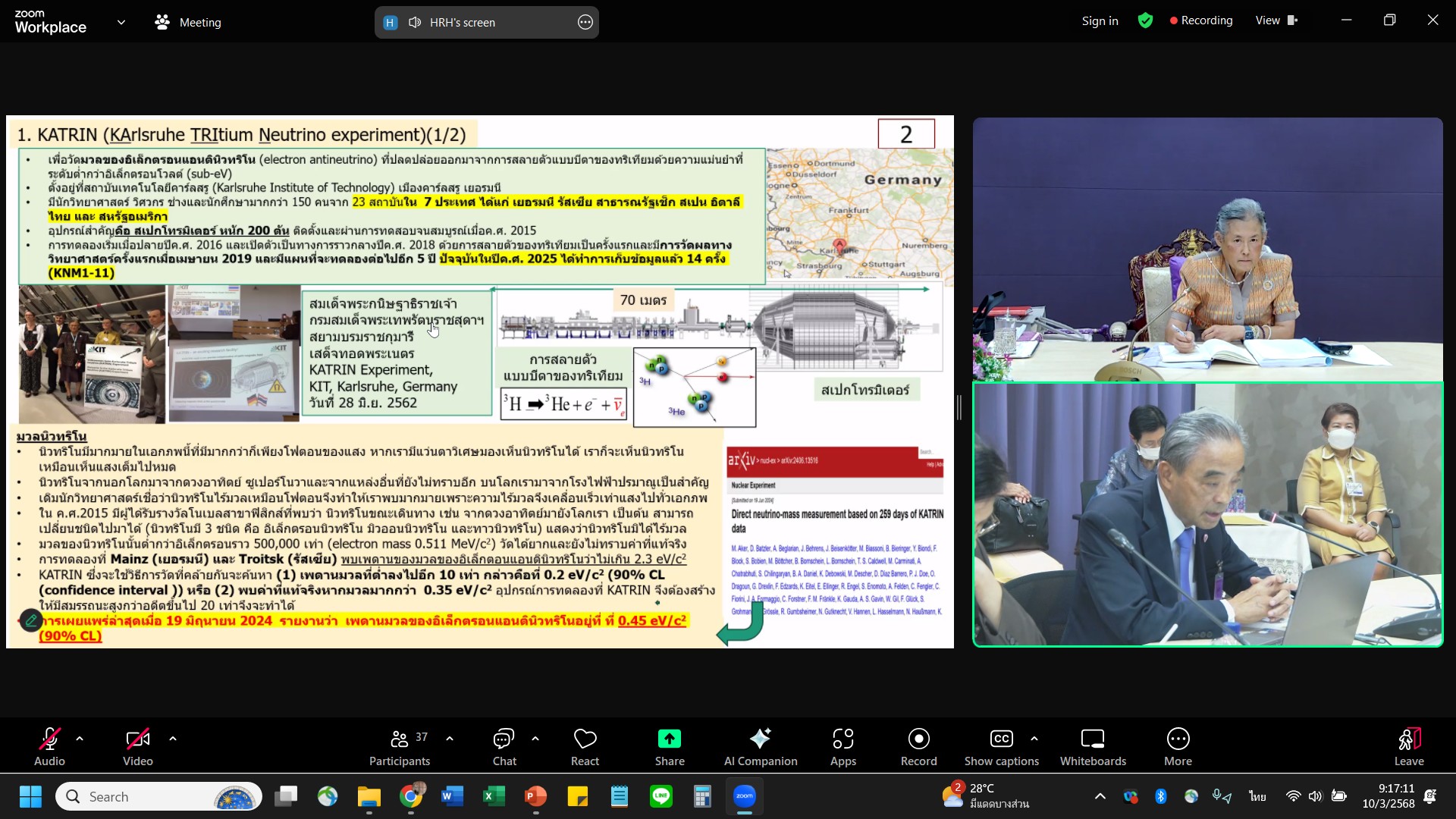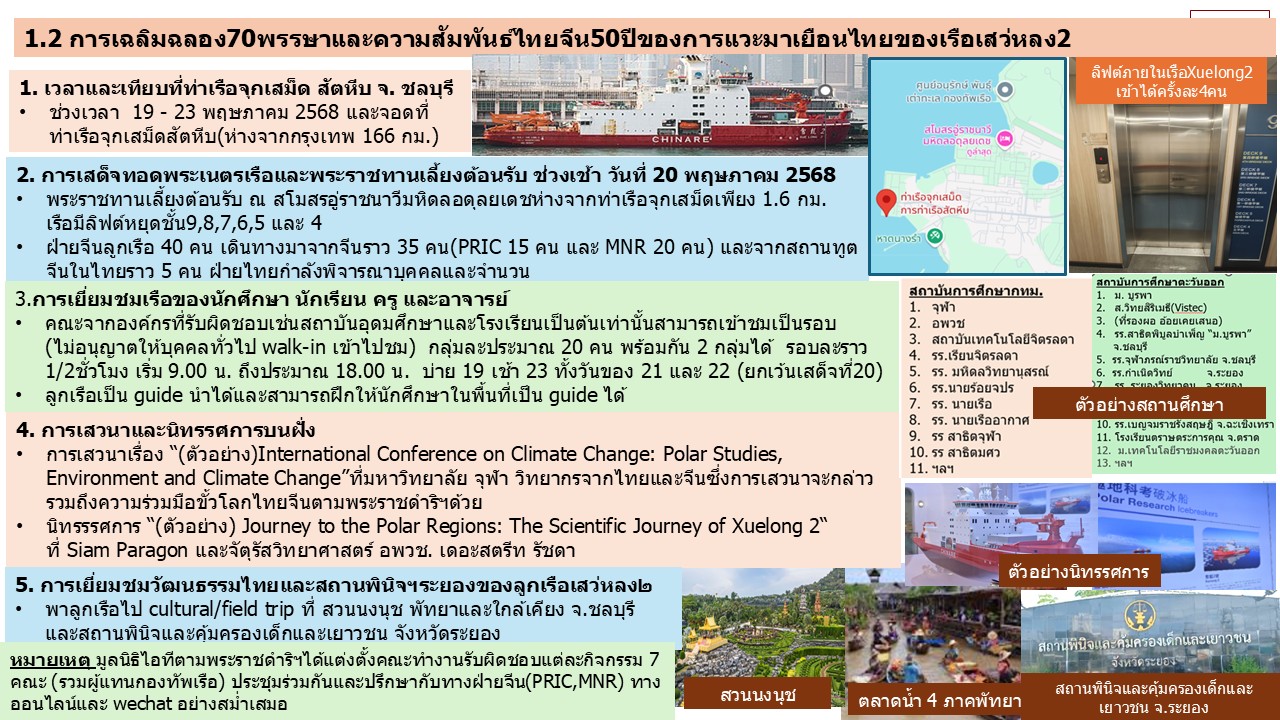Her Royal Highness Princess Maha Chakri Sirindhorn presided over the 1st annual meeting
of the Information Technology Foundation under the Initiative of Her Royal Highness Princess Maha Chakri Sirindhorn (PSIT)
to acknowledge and consider the results of PSIT work in 2024 and the plan for 2025.
Sra Pathum Palace, Bangkok, March 10, 2025 at 9:00 a.m. Her Royal Highness Princess Maha Chakri Sirindhorn presided over the 1st annual meeting of the Information Technology Foundation under the Initiative of Her Royal Highness Princess Maha Chakri Sirindhorn (PSIT) to acknowledge and consider the results of PSIT work in 2024 and the plan for 2025.

Her Royal Highness Princess Maha Chakri Sirindhorn graciously granted permission to establish the Information Technology Project under the Royal Initiative in 1995 and registered it as a foundation in 2015 with the mission of using information technology, science and other technologies, to reduce social inequality. The initial target groups are: rural school children, the persons with disabilities, sick children in hospitals, prisoners and youth in juvenile detention and protection centers.

The Meeting consisted of 14 members of the Foundation’s Board member and Advisors, and 50 participants (executives of network agencies and researchers) who attended both onsite and online, totaling 64 people. There were 4 agendas (with 13 sub-agenda).

Examples of PSIT work in 2024 include: (1) Establishment of an International Lunar Research Station, operated by the National Astronomical Research Institute of Thailand (NARIT) in collaboration with the China National Space Administration (CNSA), to develop a high-energy particle detector, including electrons, alphas, and protons, under the cosmic radiation in space, and to study the effects between the Earth, the Moon, and the Sun due to these particles. Currently, the prototype is being developed, calibrated, and tested in space conditions similar to the Moon, and is compatible with China’s Chang’e-7 spacecraft. (2) Construction of a linear particle accelerator to irradiate fruits with X-rays, operated by the Synchrotron Light Research Institute (SLRI). Currently, the X-ray irradiation of fruits is being tested for sterilization and the results are being compared with those of imported machines. The goal is to achieve an appropriate amount of radiation to eliminate pathogens while maintaining nutritional value, and the physical changes are within the acceptable range for consumption, using locally developed technology. (3) The installation of a cyclotron to produce radiopharmaceuticals, operated by the Thailand Institute of Nuclear Technology (TINT), which is a type of particle accelerator used to accelerate charged particles, such as protons, to have higher energy in a circular path. It is used to produce unstable isotopes from stable isotopes for medical benefits and to increase the opportunity for patients to access medicine. (4) The creation of an optical atomic clock system, operated by the National Institute of Metrology, which has an accuracy of approximately 10-16 seconds per second, which is important because an accurate clock will improve the country’s time infrastructure, and will be an important foundation for the country’s digital system. (5) The establishment of a Chinese satellite image receiving station at the Space Innovation Park, Sriracha District, Chonburi Province, operated by the Geo-Informatics and Space Technology Development Agency, which will provide Thailand with high-resolution satellite images for use in various missions, especially during disasters, quickly and promptly.

In addition, the meeting acknowledged and considered of the progress of several projects, such as the Biomedical Engineering Consortium Project, the Thai-Chinese and Chinese-Thai Automatic Language Translation System Cooperation Project with the Chinese Academy of Sciences. The project to select scholarship recipients to study for master’s and doctoral degrees at overseas institutions, which are presented to Her Royal Highness Princess Maha Chakri Sirindhorn to grant to students from Thailand. The Royal Initiative Polar Research Project, which this year will have important activities such as welcoming the icebreaker Xuelong 2 to Thailand during May 19-23 after the ship has completed its Antarctic exploration mission and will return to China. There will be ship tour activities, seminars and exhibitions, etc., which are activities to honor Her Royal Highness Princess Maha Chakri Sirindhorn’s 70th birthday anniversary on April 2, 2025 and to join in celebrating the 50th anniversary of Thai-Chinese diplomatic relations in 2025.
The work of PSIT has been successful under the collaboration with many partners from various agencies, both domestic and international, resulting in the development of knowledge, human resource development, and benefits for the public. Throughout almost 30 years, due to the devotion to Her Royal Highness Princess Maha Chakri Sirindhorn, who has shown kindness to all Thai people, all government agencies at the ministry, department, division, province, district and sub-district levels, state enterprises, private sectors, universities, research institutes, and foundations have joined hands to support with physical strength, morale, knowledge, intelligence and financial resources in every project until present.
For more information or to support the activities of the Foundation,
Contact the Information Technology Foundation under the Initiative
Her Royal Highness Princess Maha Chakri Sirindhorn
Tel. 02 564 7000 ext. 81813, 81816
Email: info@princess-it.org, www.princess-it.org
